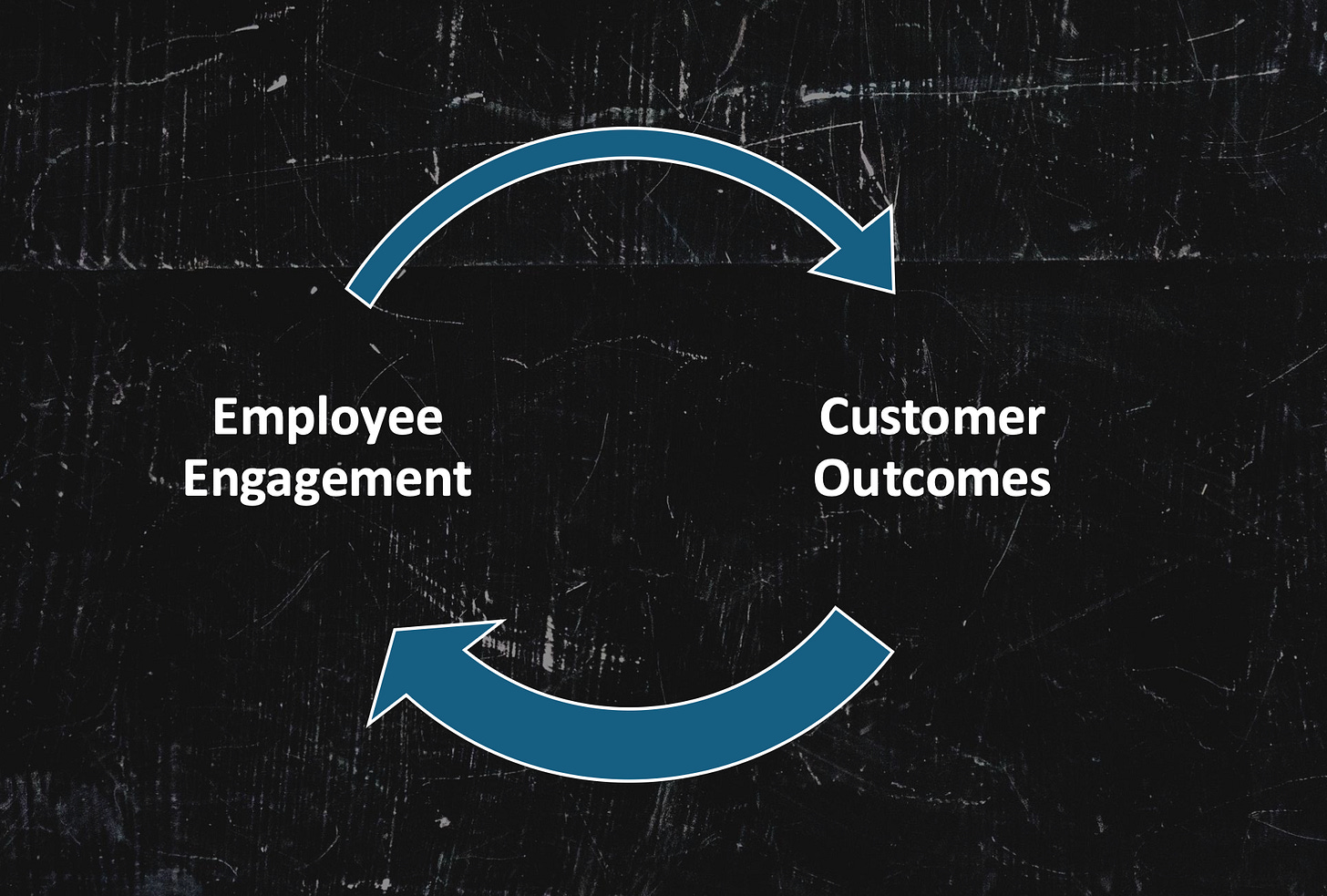Focus on doing great work
When you get into the high-performance groove, your organisation is able to do great work, AND be a great place to work.
These are not competing goals that you have to divide your attention between. They are a single target, and a combined result.
A high-performance culture means letting people use their own creative ingenuity to solve customer problems. This maximises your organisation’s ability to create value and impact. But it also gives people a rewarding experience of work, where they can do a good job and feel proud of themselves1. The same things that lead to great outcomes in the work, lead to a better experience for people.
But notice that, although this is one goal with two parts, there is focus more on "doing good work" than it does on "being a great workplace". This is what I talked about last week when I said that culture cannot be the end goal. That it's by focusing on being a place to do great work that you become a great workplace. And consequently it is the job of leaders and managers to fulfil people’s right to succeed.
Although it's worth repeating: this is not to say that employee experience doesn't matter. If you have really poor working conditions, and really terrible bureaucracy, people will be unhappy and will do bad work. You have to treat people well.
But treating people well only goes so far - and the rate of return starts to drop off pretty quickly. You do more and more and more, and it has no impact on morale - and a negative impact on the bottom line. Focusing directly on happiness does not make people happier.
Ten years ago, I thought what mattered was to be a cool organisation. Now when I come back to it, I look at the problem like this:
In other words, focusing on ‘being a great place to work’ can improve the work that you do a little. But focusing on ‘being a place to do great work’ can improve people’s experience of work a lot2.
These are not new ideas. Dr W E Deming was saying these things decades ago:
"The factory worker, I find, the world over, and this has been true for decades... has always been interested in quality… all they ask for is a chance to take pride in their work."
There is an interesting parallel here to cognitive behavioural therapy, which highlights the feedback loop between feelings and actions. Instinctively we think “I don’t feel like doing this, so I won’t” - but we can act our way into feeling better.

